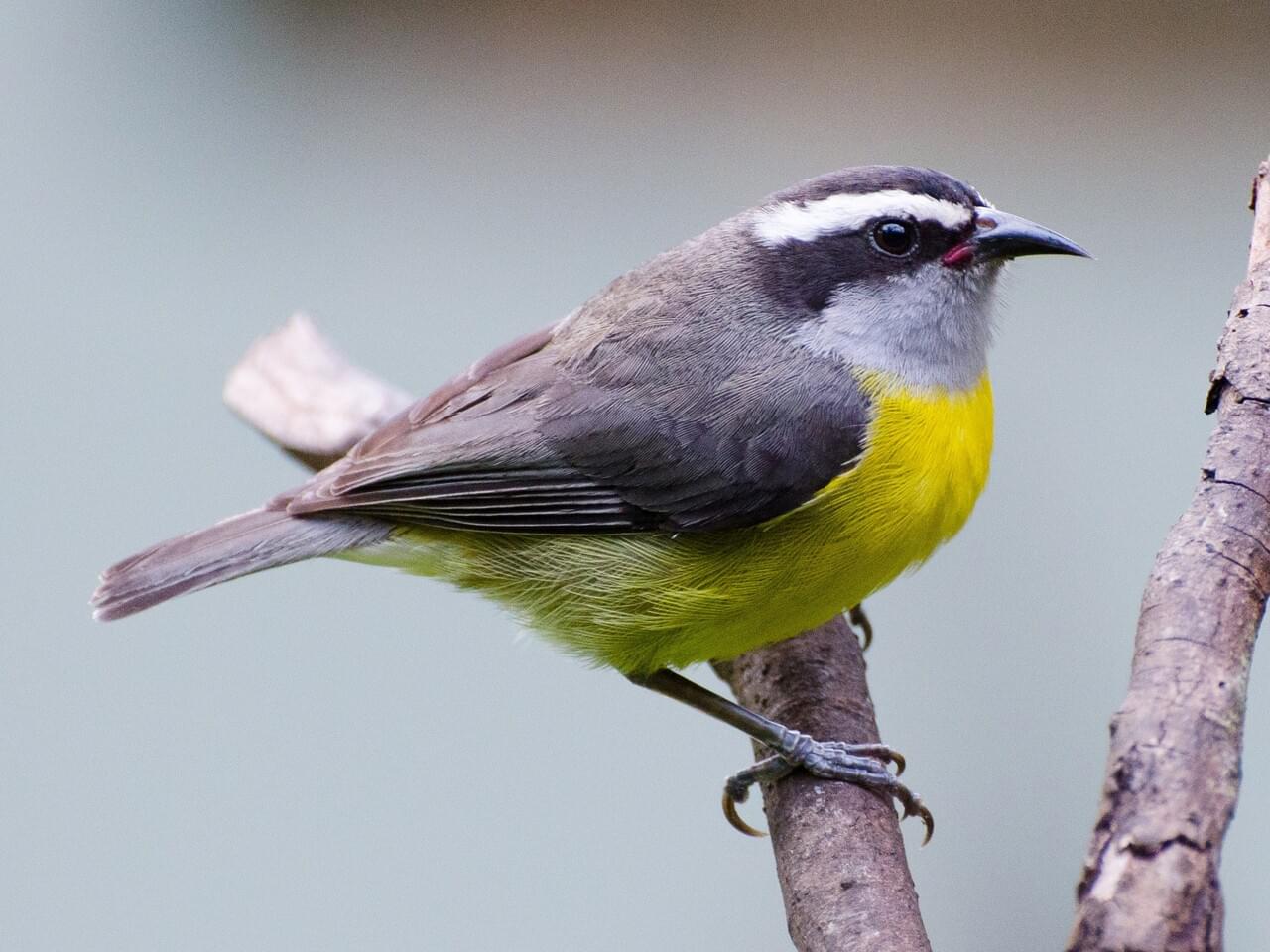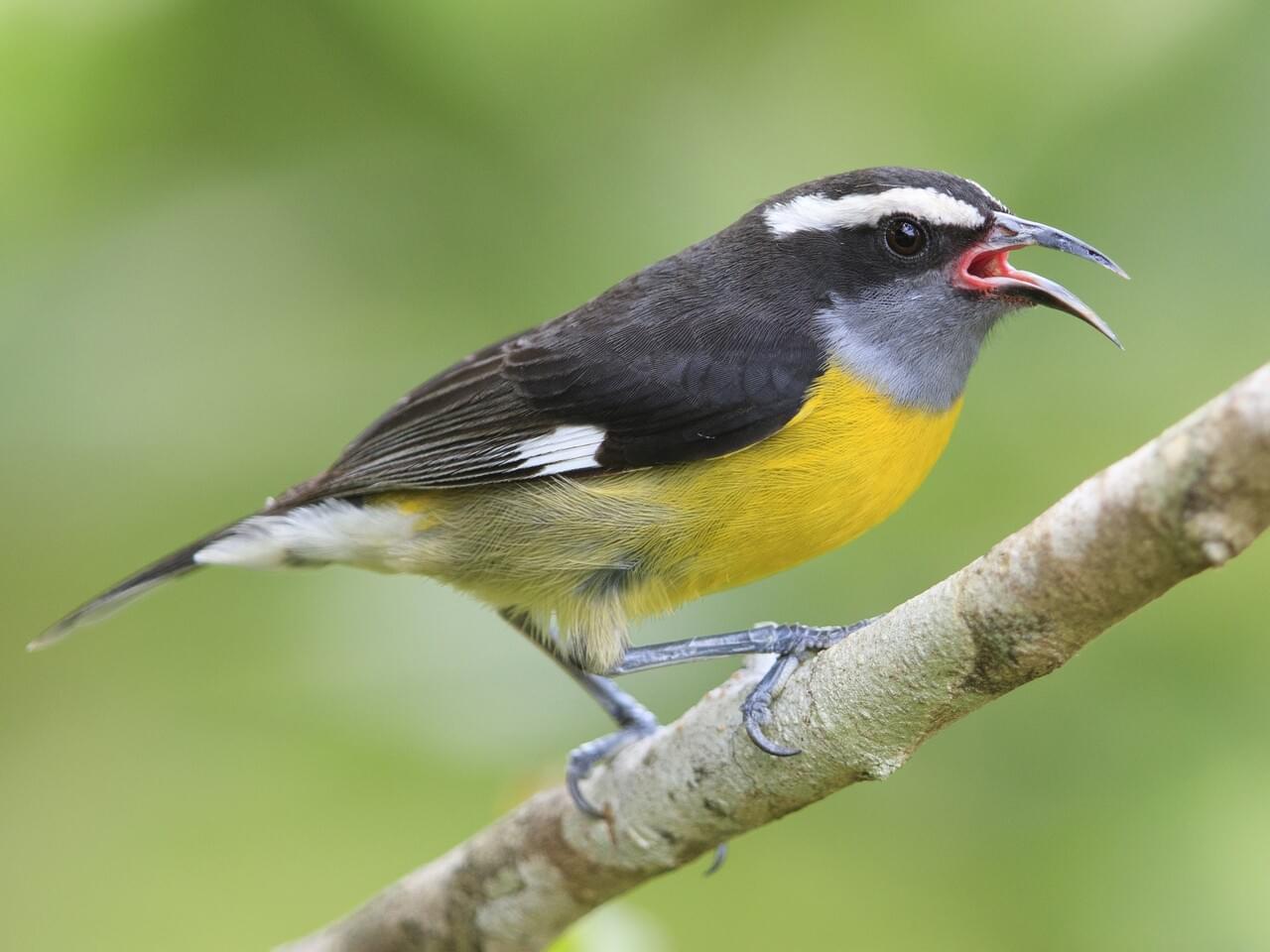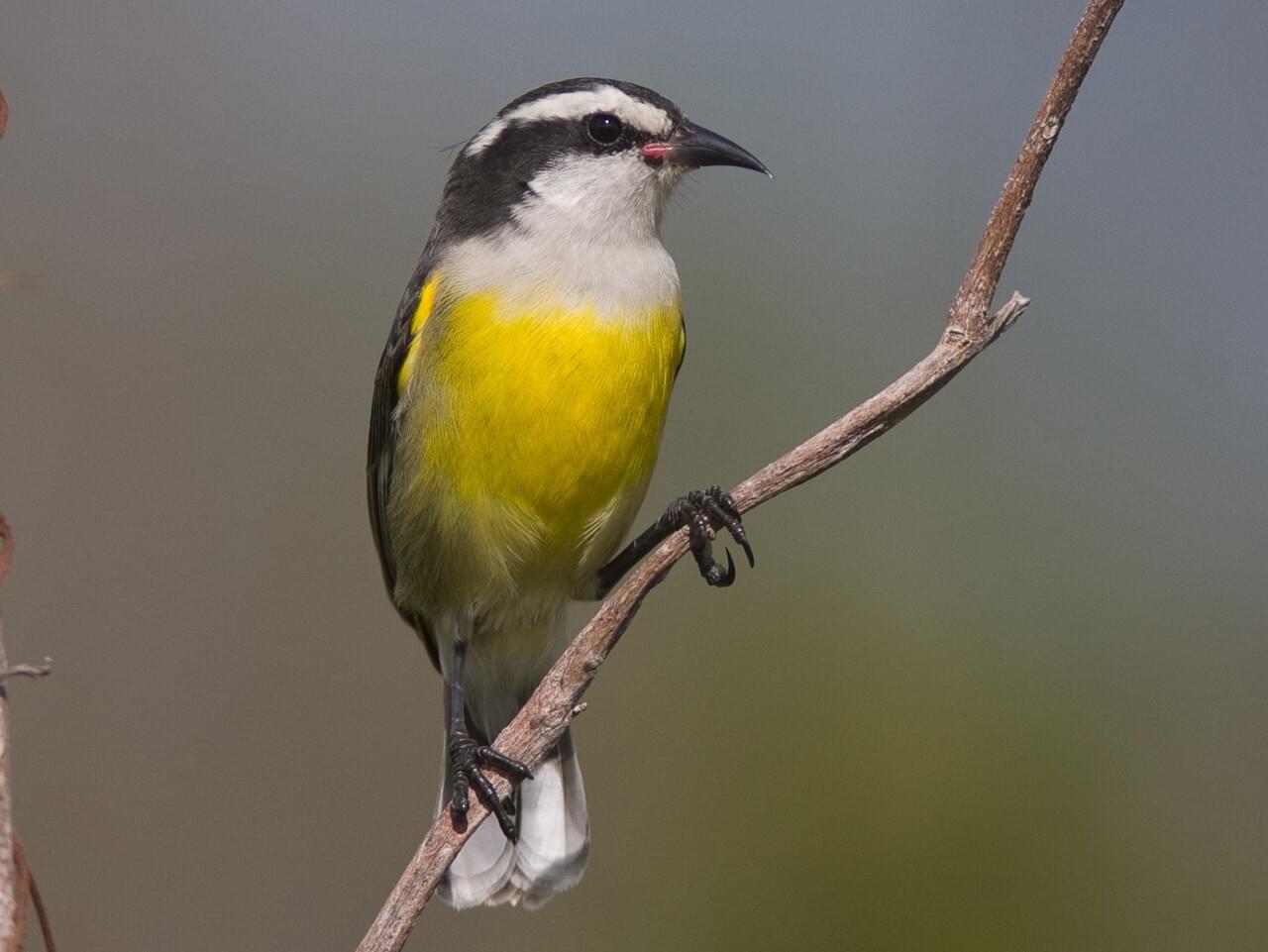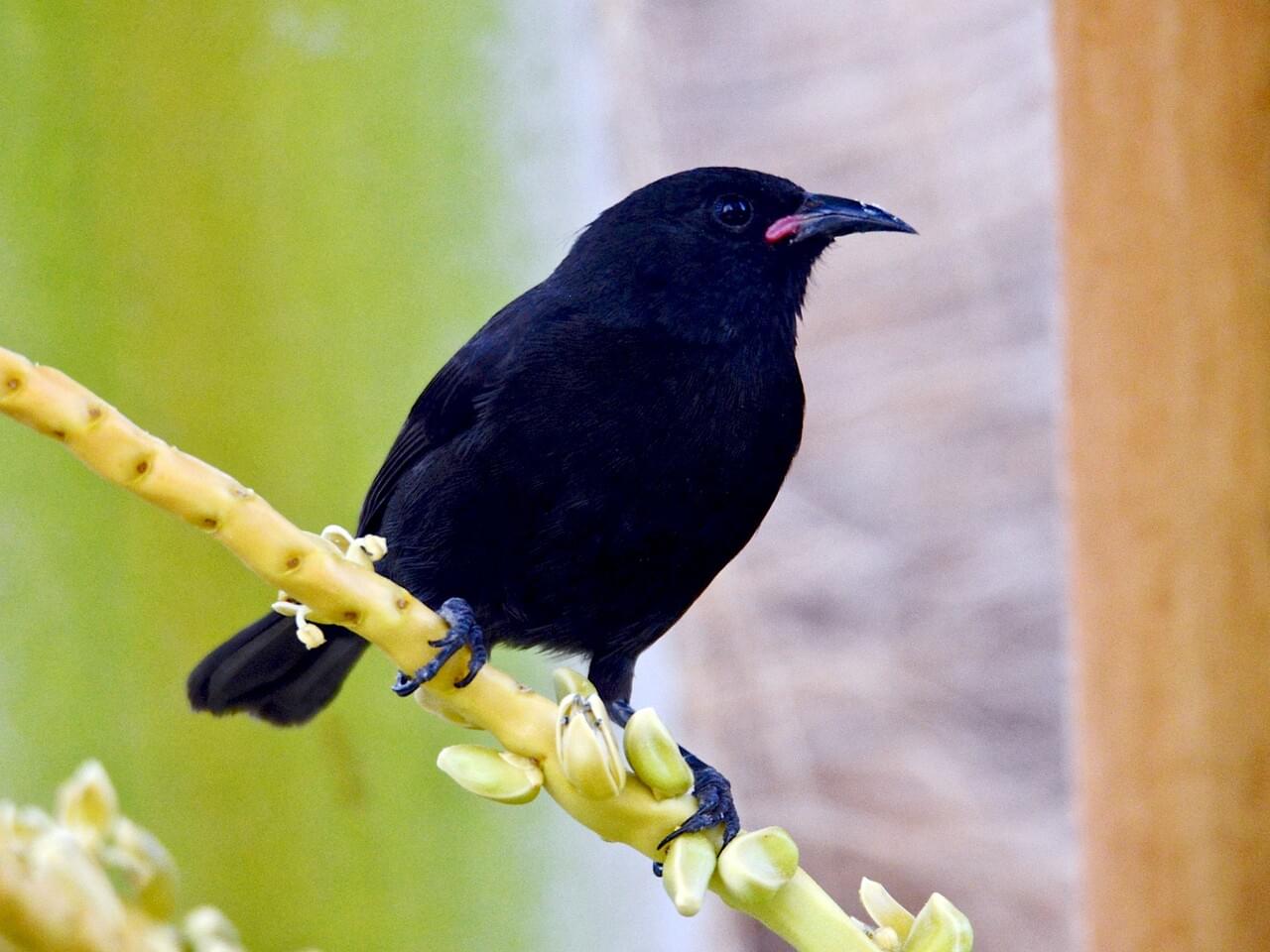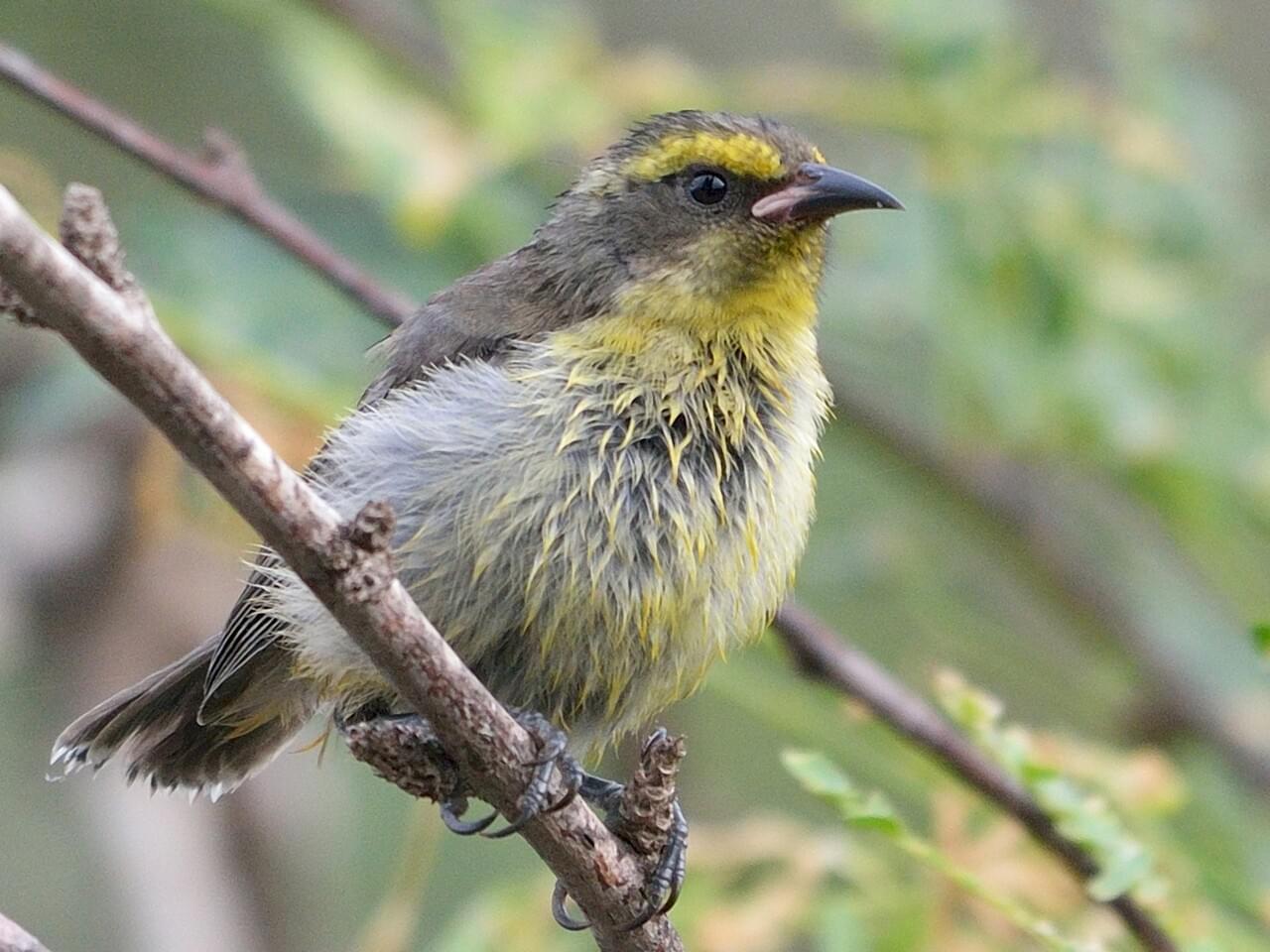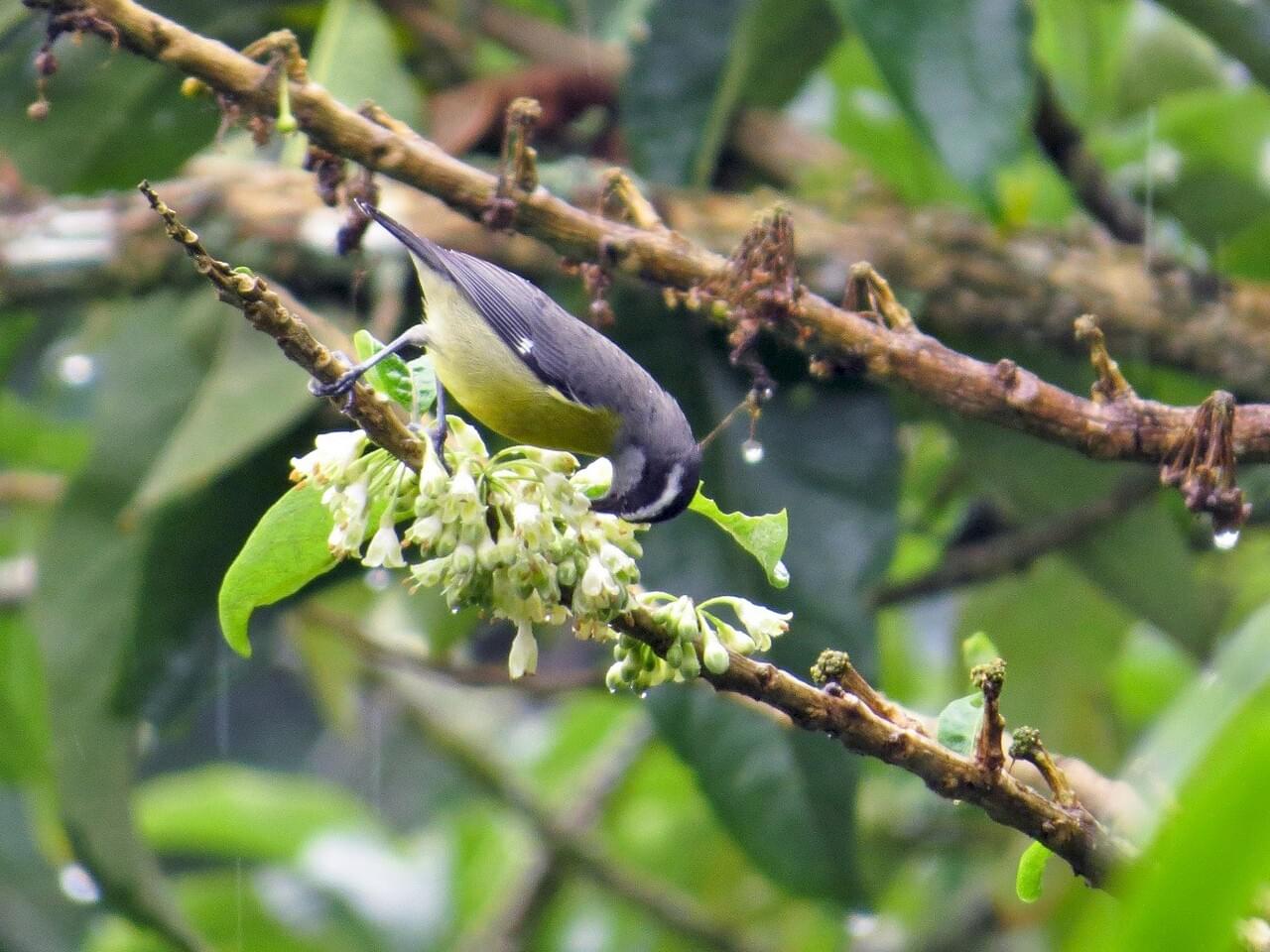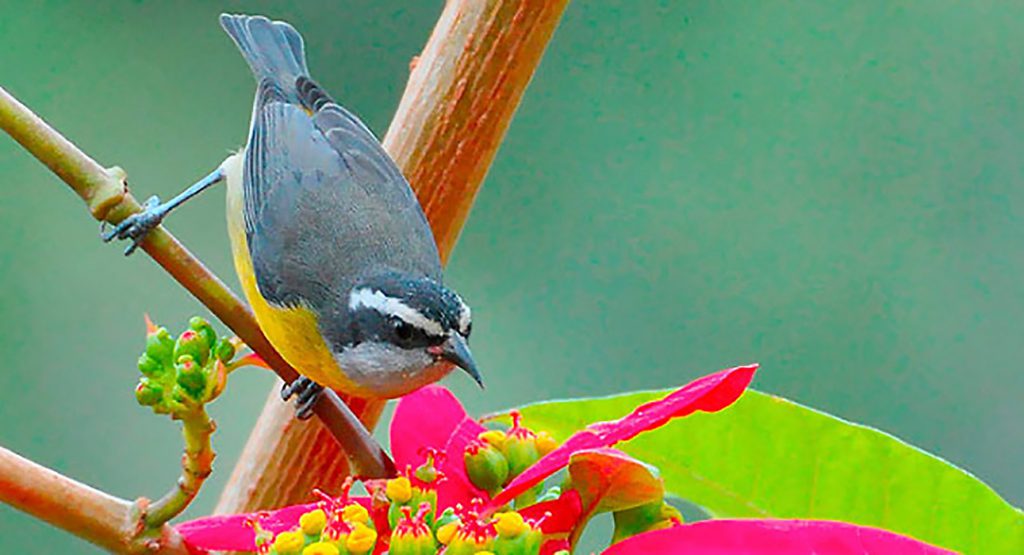 Photo ©
Cláudio Dias Timm
Photo ©
Cláudio Dias Timm
Bananaquit
Regional Species
The Bananaquit inhabits a variety of habitats from scrubland to tropical lowland forest edge. It is a distinctive bird with down-curved bill, black upperparts, bright yellow underparts, and a conspicuous white eyebrow. The Bananaquit is bold and active feeder, and most often is encountered in pairs or in small groups. With a diet of nectar and fruit, the Bananaquit frequents flowering trees and shrubs where they often cling to flowers.
Range
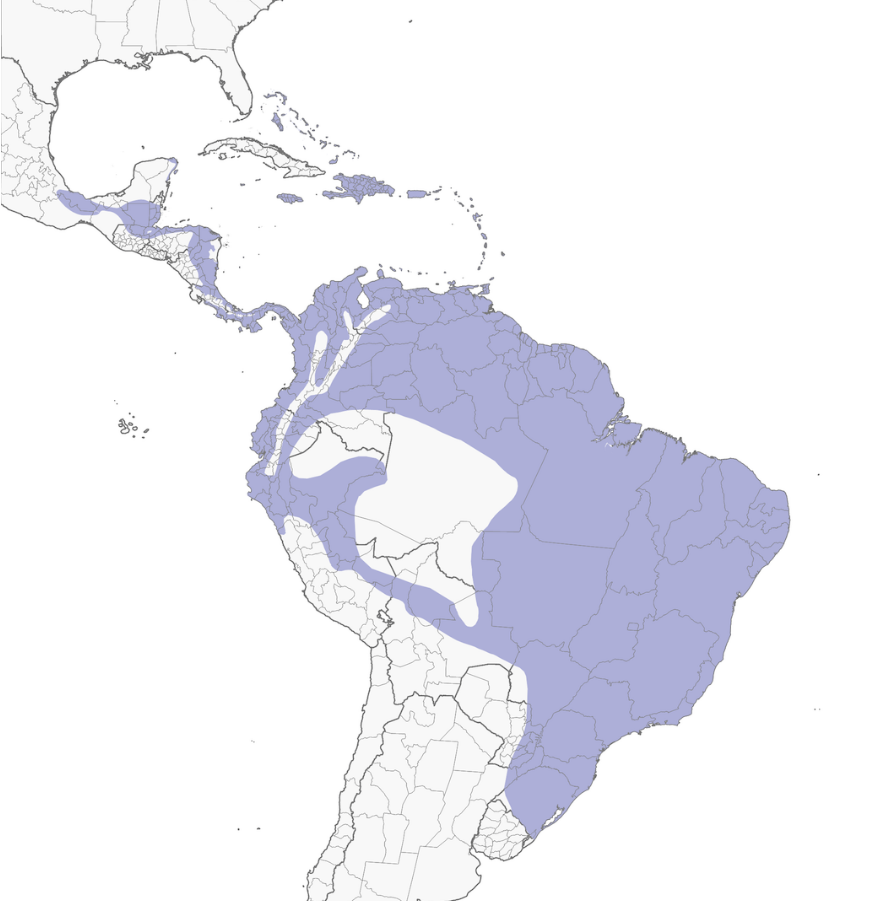
Habitat
![]() The Bananaquit inhabits humid evergreen forest, humid woodland edges, crops, second growth forests, cities, parks, gardens, orchards and hedges with abundant flowers. It is usually seen on the foliage of bushes or trees with plenty of flowers or fruits.
The Bananaquit inhabits humid evergreen forest, humid woodland edges, crops, second growth forests, cities, parks, gardens, orchards and hedges with abundant flowers. It is usually seen on the foliage of bushes or trees with plenty of flowers or fruits.
Food
![]() The Bananaquit feeds on fruits, nectar, small insects and spiders.
The Bananaquit feeds on fruits, nectar, small insects and spiders.
Behavior
![]() Bananaquits are bold and active feeders. They are usually encountered in pairs or in small groups. Often they cling head downward; gleaning small insects and spiders from foliage, creeping over trunks and limbs searching for them; they pierce berries to suck out juice; prob small flowers and pierce the base of long, tubular corollas for nectar. In some feeding areas, it is common to see competitive encounters between Bananaquits and other nectivorous birds like hummingbirds. In some feeding areas, it is common to see competitive encounters between Bananaquits and other nectarivorous birds like hummingbirds. The Bananaquit courtship is a simple "dance" of quick reverences and inclinations between the male and female while hopping and erecting the rump feathers and tail, and facing each other.
Bananaquits are bold and active feeders. They are usually encountered in pairs or in small groups. Often they cling head downward; gleaning small insects and spiders from foliage, creeping over trunks and limbs searching for them; they pierce berries to suck out juice; prob small flowers and pierce the base of long, tubular corollas for nectar. In some feeding areas, it is common to see competitive encounters between Bananaquits and other nectivorous birds like hummingbirds. In some feeding areas, it is common to see competitive encounters between Bananaquits and other nectarivorous birds like hummingbirds. The Bananaquit courtship is a simple "dance" of quick reverences and inclinations between the male and female while hopping and erecting the rump feathers and tail, and facing each other.
Nesting
![]() The nest is a compact globular structure with a round doorway facing obliquely downward. It is made of varied vegetable materials, such as green moss softly lined with seeds, fine fibers or feathers. Bananaquits are persistent builders, building nests in all seasons. The nest is placed in shrubs, trees or vine tangles usually at a height between 1.5 m and 3 m, rarely 15m up. The female lays 2 or 3 eggs and incubates them alone.
The nest is a compact globular structure with a round doorway facing obliquely downward. It is made of varied vegetable materials, such as green moss softly lined with seeds, fine fibers or feathers. Bananaquits are persistent builders, building nests in all seasons. The nest is placed in shrubs, trees or vine tangles usually at a height between 1.5 m and 3 m, rarely 15m up. The female lays 2 or 3 eggs and incubates them alone.
Appearance
Typical Sound

© Peter Paul Kellogg / Macaulay Library
Size and Shape
The Bananaquit is a small bird of about 9.5 - 10.5 cm in height. It has a pointed bill, which curves downward.
Color Pattern
Its crown and sides of the head are black, its eyebrows are white. The throat is pale grey, and its back is gray. Wings are dark gray with a white spot on the base of the flight feathers. The Bananaquit has a yellow chest. Its belly and rump are yellowish, its tail is black, and legs are slate-gray. Juveniles are duller; they have yellowish eyebrows, and their heads and backs are olive grayish.
Plumage Photos
Similar Species
The color pattern of the plumage and the bill shape make this bird an unmistakable species.
Did you know?!
- The Bananaquit is a persistent builder. All year around individual Bananaquits make "dormitories" that resemble breeding nests to sleep in.
